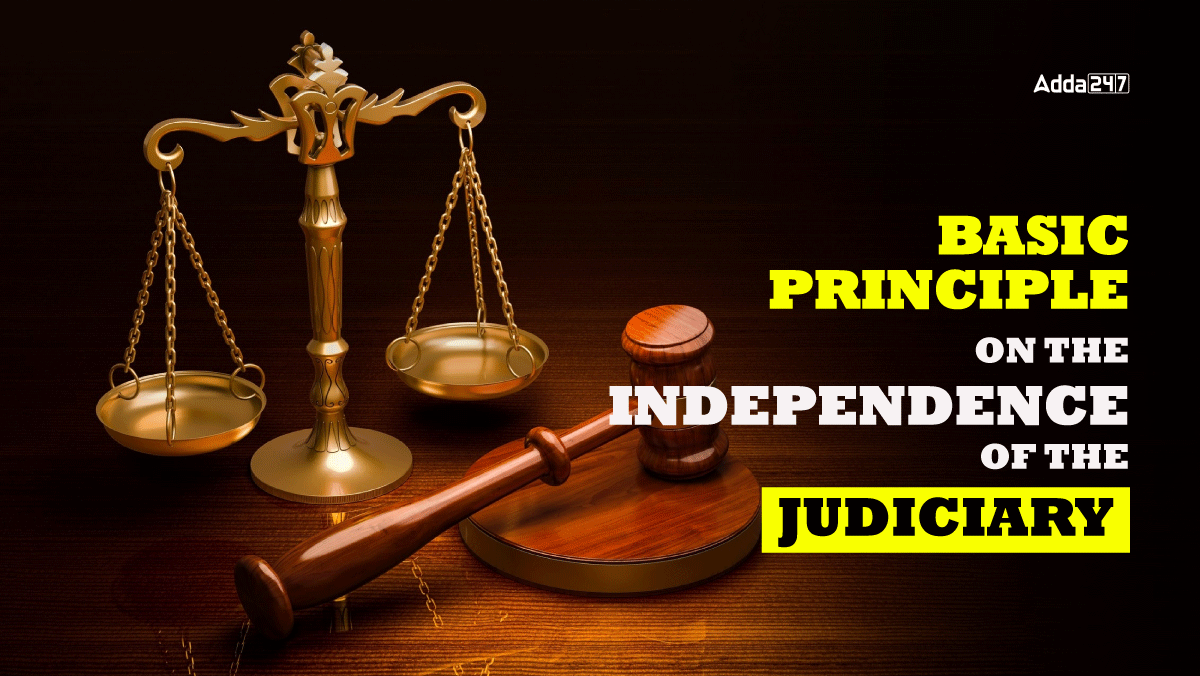Table of Contents
Judicial independence is a foundational principle of democratic governance and the rule of law. It ensures that Judges can perform their duties impartially, free from external pressures, and safeguard the rights of individuals. Over time, the independence of the Judiciary has been recognized globally as essential for maintaining justice, with various international and national frameworks designed to protect and promote this principle. This article examines the core aspects of judicial independence, focusing on the qualifications, selection, and training of Judges, their freedom of expression, and their conditions of service and tenure, as well as the discipline and immunity that protect them in their role.
Independence of the Judiciary
The independence of the Judiciary is essential for upholding the rule of law and protecting citizens’ rights. Judicial independence ensures that Judges can make decisions free from external influence, whether political, social, or economic. Courts must be able to interpret and apply the law impartially, without pressure from the executive or legislative branches. A landmark case in the U.S., United States v. Nixon (1974), exemplifies this principle when the U.S. Supreme Court ruled against President Nixon, reinforcing that even the head of State is not above the law.
In India, judicial independence is enshrined in the Constitution. Article 50 of the Indian Constitution mandates the separation of the judiciary from the executive to ensure impartial justice. The famous Supreme Court Advocates-on-Record Association v. Union of India (2015) case is a vital example of the Indian Judiciary asserting its independence when it struck down the National Judicial Appointments Commission (NJAC), affirming the role of the judiciary in maintaining autonomy over appointments.
Qualifications, Selection, and Training
The selection of Judges must be based on integrity, legal acumen, and impartiality. The United Nations Basic Principles on the Independence of the Judiciary emphasize that Judges must be selected through a transparent and merit-based process, free from discrimination based on race, religion, gender, or political beliefs. The goal is to ensure that judicial appointments are driven by qualifications rather than political motives.
In India, the appointment of Judges to the Supreme Court and High Courts is done through the Collegium system, a mechanism designed to minimize executive interference. Article 124 of the Indian Constitution outlines the procedure for appointing Judges, which involves consultation with the Chief Justice of India. This process was fortified by the Second Judges Case (1993), which clarified the judiciary’s leading role in judicial appointments, ensuring that the executive does not have unchecked power in this domain.
Freedom of Expression and Association
Judges, like any other citizen, have the right to freedom of expression, belief, association, and assembly, as recognized by international human rights norms. However, their conduct must always maintain the dignity of their office and preserve judicial impartiality. The Bangalore Principles of Judicial Conduct (2002) outline the ethical framework within which Judges should exercise these rights, ensuring they do not engage in activities that could compromise their neutrality.
In India, Judges are expected to exercise caution in public expressions, particularly in political or social controversies. The Contempt of Courts Act, 1971 protects the judiciary from unjust criticism, safeguarding the dignity and authority of judicial decisions. The judiciary’s credibility hinges on its members’ ability to refrain from making statements that might question their impartiality.
Conditions of Service and Tenure
The security of judicial tenure, remuneration, and conditions of service is crucial to maintaining judicial independence. The UN principles assert that Judges should have secure terms of office, with their salaries and pensions protected by law. These provisions prevent external forces from influencing judicial decisions through financial coercion or threats of removal.
In India, the salaries and allowances of Judges are secured under Articles 125 and 221 of the Constitution. Supreme Court Judges, for instance, serve until the age of 65, and High Court Judges until the age of 62, with salaries drawn from the Consolidated Fund of India. This system ensures that Judges can perform their duties without fear of financial pressure or arbitrary removal. The State of U.P. v. Raj Narain (1975) case, where the judiciary ruled against then-Prime Minister Indira Gandhi, showcases the judiciary’s ability to function independently, even in politically charged situations.
Discipline, Suspension, and Removal
The principles governing the discipline and removal of Judges are vital for ensuring that judicial officers remain accountable while being protected from undue political influence. Judges should only be removed for proven misconduct or incapacity, following a fair and transparent process. This safeguards the judiciary from arbitrary dismissal while maintaining accountability.
In India, Judges can only be removed through impeachment by Parliament, as outlined in Articles 124(4) and (5) of the Constitution. The process is stringent, requiring a special majority in both Houses of Parliament. This ensures that removal is reserved for extreme cases of misconduct or incapacity, protecting Judges from undue pressure from the executive or legislature.
Professional Secrecy and Immunity
Judges are entrusted with confidential information, and their deliberations must remain secure to protect the integrity of the judicial process. Professional secrecy ensures that Judges can deliberate freely, without fear of disclosure, while judicial immunity protects them from personal legal repercussions for decisions made in their judicial capacity.
In India, Articles 129 and 215 grant the Supreme Court and High Courts the power to punish for contempt, safeguarding the judiciary’s authority. Judges are also protected from frivolous lawsuits, ensuring they can perform their duties without fear of personal liability, as long as they act within the scope of their judicial responsibilities.
Conclusion
Judicial independence is the bedrock of democracy and the rule of law. The integrity of a Nation’s legal system depends on the ability of its Judges to operate free from external pressures and biases. The principles governing judicial selection, service, freedom of expression, and professional immunity ensure that Judges can make impartial decisions, protecting the rights of individuals and upholding the law. In India, as in many democracies, the Judiciary serves as the ultimate guardian of justice, and its independence must be fiercely protected to maintain public confidence in the legal system. Through landmark cases and Constitutional safeguards, judicial independence remains a critical pillar of India’s democracy and a global model for ensuring fair justice.



 TSPSC Group 1 Question Paper 2024, Downl...
TSPSC Group 1 Question Paper 2024, Downl...
 TSPSC Group 1 Answer key 2024 Out, Downl...
TSPSC Group 1 Answer key 2024 Out, Downl...
 UPSC Prelims 2024 Question Paper, Downlo...
UPSC Prelims 2024 Question Paper, Downlo...





